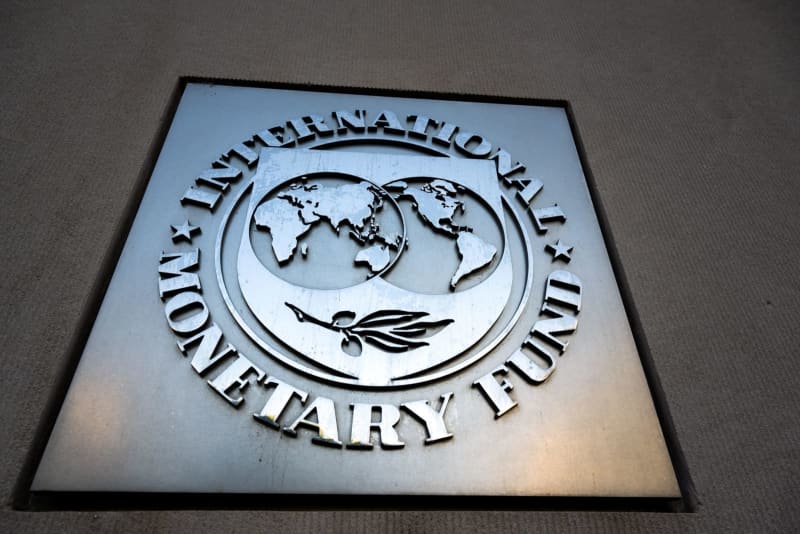The logo of the International Monetary Fund (IMF) is pictured on the facade of the conference building on Pennsylvania Street. Soeren Stache/dpa
The International Monetary Fund (IMF) expects the German economy to grow by 0.9% in 2026, significantly lower than Berlin’s own forecasts.
The IMF’s World Economic Outlook, released on Tuesday, predicts that Europe’s largest economy will see gross domestic product (GDP) rise 0.2% in 2025, ending a run of two consecutive years of recession.
However, its forecast for 2026 is well under the German government’s prediction of 1.3% growth, based off optimistic expectations of domestic demand.
Berlin’s rosier outlook is premised off stable prices, wage increases and tax relief, along with rising employment and a debt-financed spending spree on infrastructure and defence.
The Washington-based IMF, on the other hand, sees greater risk from global trade uncertainties for the export-driven German economy, opting to leave its July forecast for 2026 unchanged in the latest report.
In contrast, the outlook for the eurozone has improved slightly, with growth now expected at 1.2% this year versus 1% in the previous prediction.
The fund said the 20-member currency bloc has been supported by “resilient” intra-European trade even as exports to the United States have declined sharply.
For 2026, the fund projects eurozone growth of 1.1%, a notch lower than previously anticipated, citing persistent uncertainty in trade policy and a lack of clear, long-term agreements following the introduction of US tariffs on European goods.
